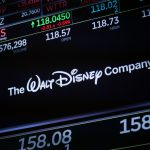

Tech Giant’s Secret Deals with AT&T, T-Mobile, and Verizon Revealed in Major Antitrust Trial
Three Key Facts
- Google allegedly paid billions to major telecom companies including AT&T, T-Mobile, and Verizon to secure default search engine status on smartphones, with discussions of a $1 billion annual deal with Apple in 2016
- The Department of Justice antitrust case against Google represents the largest competition lawsuit in decades, potentially reshaping competitive dynamics across the entire technology sector
- Pennsylvania joins 26 states requiring mandatory personal finance education, with new graduation requirements taking effect in the 2026-27 school year
Introduction
Federal prosecutors have unveiled explosive allegations that Google paid substantial sums to telecommunications giants to maintain its search engine dominance on smartphones. The revelations emerged during high-profile antitrust proceedings in Washington D.C., where the Department of Justice accuses the tech company of employing anti-competitive tactics to preserve market control.
Chris Barton, former director of mobile partnerships for Google, provided key testimony detailing financial agreements between the search giant and major service providers. His statements illuminate a broader strategy designed to outbid competitors like Microsoft’s Bing across multiple platforms.
Key Developments
The testimony revealed Google’s systematic approach to securing default search positions across major platforms. Barton confirmed discussions regarding a $1 billion annual arrangement with Apple in 2016, demonstrating the scale of investments the company made to maintain market position.
The case represents the federal government’s most significant antitrust challenge in decades. Prosecutors argue these payment arrangements constitute anti-competitive behavior that stifles innovation and limits consumer choice in the search market.
Google’s defense strategy centers on highlighting competition from multiple sources, including Amazon and other search platforms. The company maintains its practices reflect normal business competition rather than monopolistic behavior.
Market Impact
The proceedings could fundamentally alter competitive dynamics within the technology sector. Service providers and consumers may experience significant changes depending on the trial’s outcome, potentially affecting how search services are distributed and accessed.
The trial’s implications extend beyond search engines to broader questions about platform control and market access. Technology companies are closely monitoring developments as they may influence future business practices and partnership structures.
Meanwhile, the broader tech industry continues evolving through digital transformation initiatives and artificial intelligence adoption. Companies are investing heavily in cloud-based solutions and automation technologies to enhance operational efficiency.
Strategic Insights
The antitrust proceedings highlight tensions between market dominance and competitive fairness in technology sectors. Companies are reassessing partnership strategies and default service arrangements in light of increased regulatory scrutiny.
Emerging technologies including generative AI and 5G networks are creating new competitive landscapes. These developments facilitate innovations in IoT, augmented reality, and autonomous vehicles while presenting fresh challenges for market participants.
Cybersecurity investments have become critical as global cybercrime costs are projected to reach $10.5 trillion by 2025. Organizations are prioritizing security measures alongside technological advancement to protect against evolving threats.
Expert Opinions and Data
According to a report from Google News, the trial is expected to continue for several weeks while assessing the legality of Google’s business practices. Legal experts consider this case pivotal for establishing precedents in technology regulation.
In related educational developments, financial literacy initiatives are gaining momentum across multiple states. Chris Caltabiano, Chief Program Officer for the Council of Economic Education, emphasized the comprehensive nature of financial education: “When you’re talking about personal finance, you’re really talking about earning income, then what do you do with that income, right? Saving, investing, spending, credit.”
Research demonstrates that high school finance courses significantly impact future financial outcomes, including higher credit scores and improved loan management. Steve Novosel from Northeast High School shared practical results: “A student went to his supervisor and asked for a raise, and got a $4 raise just by speaking up and trying to give credit to his work.”
Pennsylvania’s new requirements reflect broader educational trends, with Next Gen reporting that 26 states now mandate personal finance education for graduation. These initiatives complement technological advancement by ensuring young people develop essential financial competencies.
Conclusion
The Google antitrust trial represents a watershed moment for technology regulation and competitive practices. The testimony regarding billion-dollar payment arrangements with telecommunications companies has exposed the extensive measures taken to maintain search engine dominance across mobile platforms.
These legal proceedings occur alongside broader industry transformations involving artificial intelligence, cybersecurity investments, and educational initiatives. The convergence of regulatory scrutiny and technological innovation creates both challenges and opportunities for market participants across multiple sectors.








